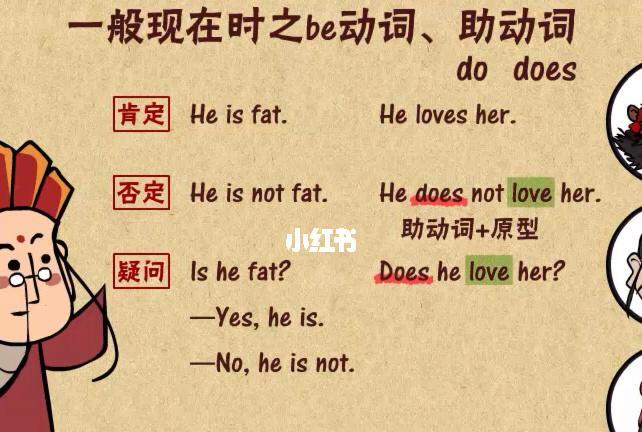英语中的be动词和助动词对于构造句子至关重要。be动词(如am, is, are, was, were)表示状态和存在,而助动词(如do, does, did, have, has, had, can, could, may, might, will, would, shall, should, must)用于构成肯定、否定和疑问句,表示能力、必须和推测等。

be动词在句子中的使用:
-
表示存在:There is a book on the table.(桌子上有一本书。)
-
表示状态:She is happy today.(她今天很开心。)
-
表示动作正在进行:He is studying English now.(他正在学英语。)
助动词在句子中的使用:
-
构成肯定句:I have finished my homework.(我已经完成了作业。)
-
构成否定句:She does not like coffee.(她不喜欢咖啡。)
-
构成疑问句:Do you like pizza?(你喜欢比萨吗?)
-
表示能力:She can speak French fluently.(她能流利地说法语。)
-
表示必须:You must finish your work on time.(你必须按时完成工作。)
-
表示推测:He might be at home now.(他现在可能在家。)
